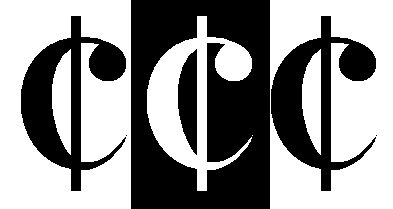Thursday 23rd February 2023: Armida String Quartet
Martin Funda (violin), Johanna Staemmler (violin), Teresa Schwamm-Biskamp (viola), Peter-Philipp Staemmler (cello)
On Thursday 23 February 2023, the young but highly experienced Armida String Quartet gripped and transported its audience with the third string quartets of Schumann and Brahms, flanking the UK premiere of the Second String Quartet by the Serbian composer Marko Nikodijevic. Named after an opera by Haydn, the German Armida Quartet showed a remarkable tightness and precision while interpreting the subtle emotional style and the stretching of form in the Schumann and Brahms, and were entirely at home in Nikodijevic’s sternly modern work.
The year 1842 is well-known as Schumann’s ‘chamber music’ year when, armed with intensive studies of illustrious past quartets, he embarked on a rapid set of three of his own. The Third Quartet crystallizes Schumann’s art of combining traditional forms with an imaginative (phantaisie) method, in which segments within traditional structures stand out almost in their own right as highly contrasted phantaisie moments, reflecting the duality of Schumann’s expressive alter-egos, Florestan and Eusebius. The first movement contrasts a rather expressionist slow opening with an exposition of three gentle ideas, combining concisely the development and recapitualtion. The second movement is a set of agitated variations, ending on spooky major-minor chords; the third a fulsome romantic tune subjected to a throbbing distress; and the finale, a perfect rondo, of three varied sections and a central ‘new’ idea gathering them up. Long codas neatly wrap up the proceedings.
Marko Nikodijevic was born in Belgrade in 1980 and studied in Stuttgart, becoming a composer of sound international standing. The Armida Quartet is one of his champions, closely involved with both of his string quartets, and giving the world premiere of the Second in Germany in July 2019. The short five-part Quartet No. 2 is a feast of tone-colour, using recognisable forms. It opens with a wild, agonized musing on the four letters of Bach’s name, the baroque bass progressions helping us along, after which a busy fugue becomes a long, speeding crescendo. An engaging tango forms the heart of the piece, and the final parts increase the tone colour through beautifully muted passages, the whole a journey from agony to calm. The ‘live’ effect was raw and visceral.
Brahm’s Third String Quartet in B flat was written in 1875, its publication as Opus 67 coinciding with that of the First Symphony. Always fluid in his opening material, Brahms likes to ramble far and wide, building up many segments of often greatly differing moods, resulting in lengthy yet tight expositions. The Third Quartet has a long exposition of varied segments, with a short development and a usual recapping which allows further variational subtleties: opening horn-like syncopated calls initiate a jaunty walk later shot through with an alternation of wayside stops and mysterious ruminations, with a squall in the middle, before the walk settles back down at the end to its happy tread.
The rest of the quartet follows the inward life of our intrepid walker, with a somewhat schmalzy romantic adagio tune subject to much inward contemplation, and a remarkable scherzo and barely differentiated trio, of stumbling syncopations and a rather mordant muted tones, contrasted with an unmuted, rasping viola, looking forward to Mahler’s folksy spookiness. The finale variations are fulsome, the jaunty walker eventually finding his place again right at the end, as the horn-calls and some of the rumination are recalled from the first movement as a firm re-establishment of the felicitous tone. The ineffable blitheness occasionally surfacing in this finale suggests the beginning of a late-style wistful mellowness, composed in ‘bucolic summer days’ spent by Brahms at Ziegelhausen near Heidelberg.
The Armida made the Brahms and Schumann seem big and important, without compromising their private inwardness, and revealed to us raw, visceral music of the young Serbian, supremely achieved in this performance.
Bob Connell
